In today's fast-evolving digital landscape, staying compliant with GDPR regulations is more crucial than ever for businesses and organizations. Understanding these requirements not only protects your customers' data but also fosters trust and transparency. As we delve into the intricacies of GDPR updates, we'll break down key changes and practical steps to ensure your compliance regime is robust. So, grab a cup of coffee, and join us as we explore how to navigate the complexities of GDPR with ease!
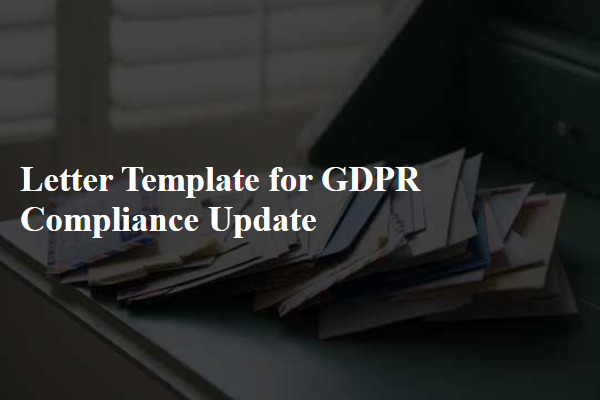
Recipient's Rights and Control Over Personal Data
The General Data Protection Regulation (GDPR) empowers individuals with significant rights concerning their personal data across the European Union. Individuals maintain the right to access their personal data, ensuring transparency regarding how their information, such as names and emails, is processed by organizations. Additionally, individuals can rectify any inaccuracies in their data, thereby ensuring its correctness and relevance. The right to erasure, often referred to as the "right to be forgotten," allows individuals the ability to request deletion of personal data under specific circumstances, such as when data is no longer necessary for the purposes for which it was collected. Individuals can also object to processing activities and restrict processing, ensuring that they have control over how their information is used. Furthermore, the GDPR mandates organizations to provide clear information about data processing, enhancing user empowerment and fostering trust regarding personal data management.
Detailed Information about Data Processing Activities
Organizations must maintain transparency regarding data processing activities to comply with the General Data Protection Regulation (GDPR). GDPR outlines that businesses must provide detailed information about the type of personal data collected, such as names, email addresses, and IP addresses, from individuals within the European Union. During processing, organizations often engage in activities like storing, retrieving, and sharing data with third-party services, including cloud storage providers. Key principles of data minimization should be observed, ensuring only necessary information is collected for specified purposes, such as fulfilling contractual obligations or complying with legal requirements. Additionally, organizations need to delineate their legal basis for processing data, which may include user consent, legitimate interests, or contractual necessity. Implementation of security measures, such as encryption and access controls, is critical to protecting sensitive data from unauthorized access. Retention periods must be defined, highlighting how long personal data will be stored before deletion or anonymization occurs. Furthermore, individuals must be informed of their rights, including access, rectification, erasure, and the right to lodge complaints with supervisory authorities like the Information Commissioner's Office (ICO) in the UK or relevant counterparts across EU member states.
Data Protection Officer Contact Details
Data Protection Officers (DPOs) serve as essential entities for ensuring GDPR compliance across organizations in the European Union. Updated contact details of the DPO must be disseminated to stakeholders, emphasizing transparency. The DPO typically oversees data protection strategies, monitors compliance with the General Data Protection Regulation (GDPR), and acts as a point of contact between the organization and regulatory authorities. For businesses, it is critical to provide accurate contact information, including telephone numbers, email addresses, and office locations, to facilitate inquiries regarding data privacy practices and rights of individuals. Regular updates are necessary to reflect any changes in personnel or contact methods, ensuring that stakeholders can effectively communicate concerns about data processing activities. Proper dissemination of this information creates accountability and fosters trust within consumer relationships.
Updated Privacy Policy Access and Summary
The updated Privacy Policy document outlines significant changes to data protection practices in accordance with the General Data Protection Regulation (GDPR) emphasizing user rights. The policy specifies access rights (including the right to access, rectify, and request erasure of personal data) and includes details on data processing activities. The document highlights transparency regarding information collected (such as email addresses and payment information), retention periods, and data sharing with third-party processors. Users can find the complete policy on the company website under the 'Privacy' section, allowing for easy review and acknowledgment of their consent. Additionally, a summary of key changes is available to enhance understanding of user protections and obligations under GDPR.
Instructions for Exercising GDPR Rights
Individuals residing in the European Union have specific rights under the General Data Protection Regulation (GDPR) that safeguard their personal information. These rights include the right to access personal data held by organizations, enabling individuals to request details regarding the information collected about them. The right to rectification allows individuals to correct any inaccuracies in their data. Furthermore, individuals possess the right to erasure, known as the 'right to be forgotten,' which permits them to request the deletion of personal data under certain circumstances. The right to restrict processing enables individuals to limit the way their data is utilized. Additionally, individuals can object to processing activities and have the right to data portability, allowing them to transfer their data between service providers easily. To exercise these rights, individuals must contact the designated Data Protection Officer (DPO) via official communication channels. Accurate identification may be required to ensure requests are legitimate. Organizations must handle these requests within one month, maintaining compliance with GDPR standards.

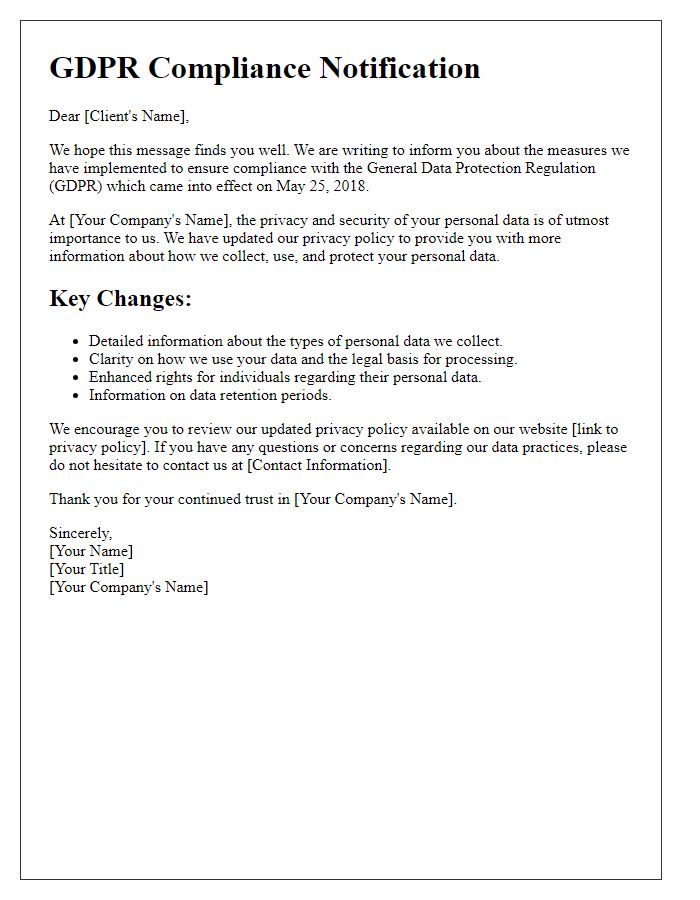
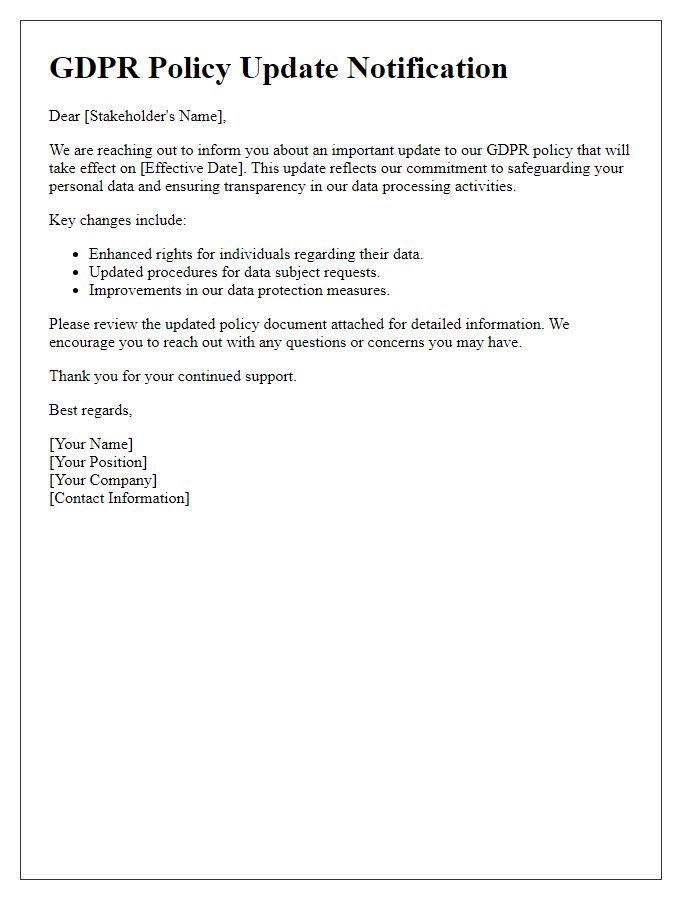
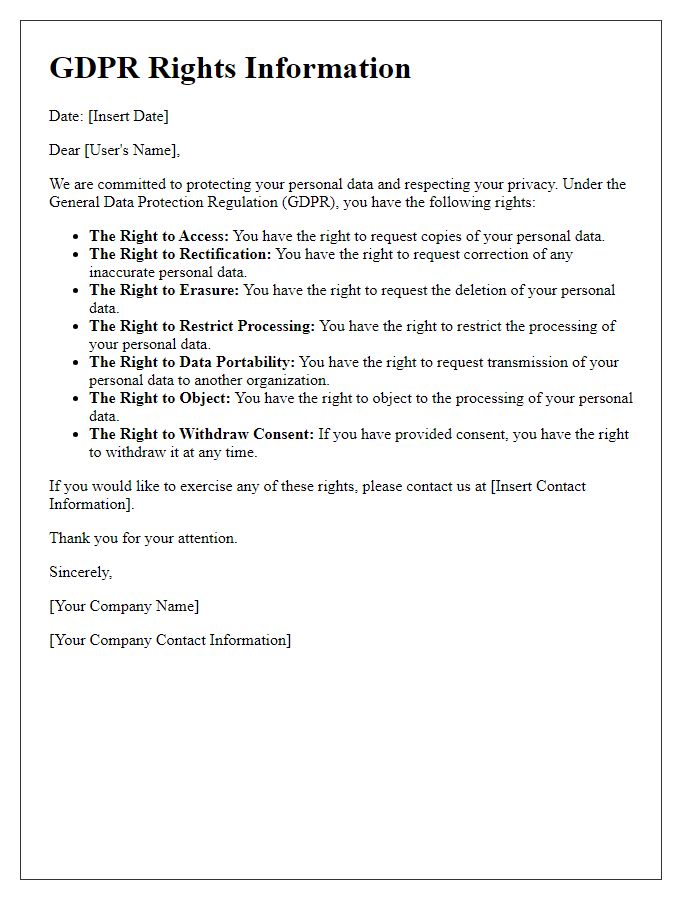
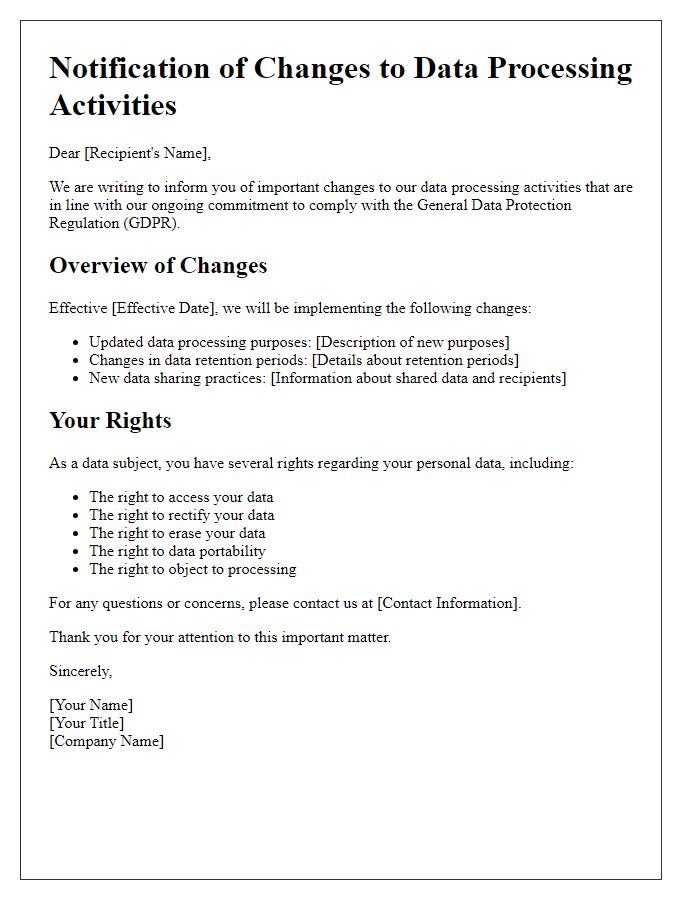
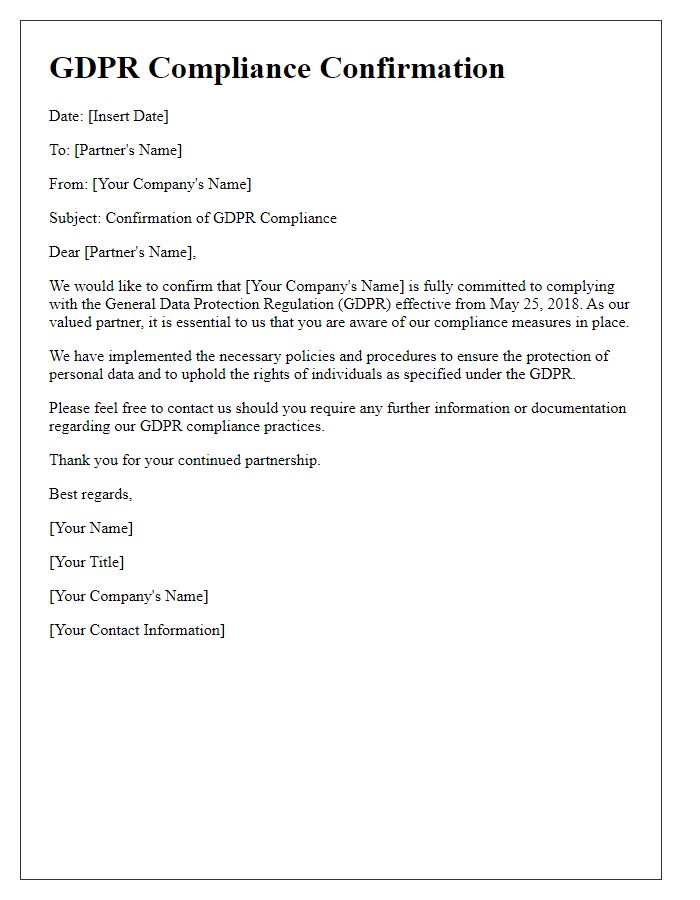
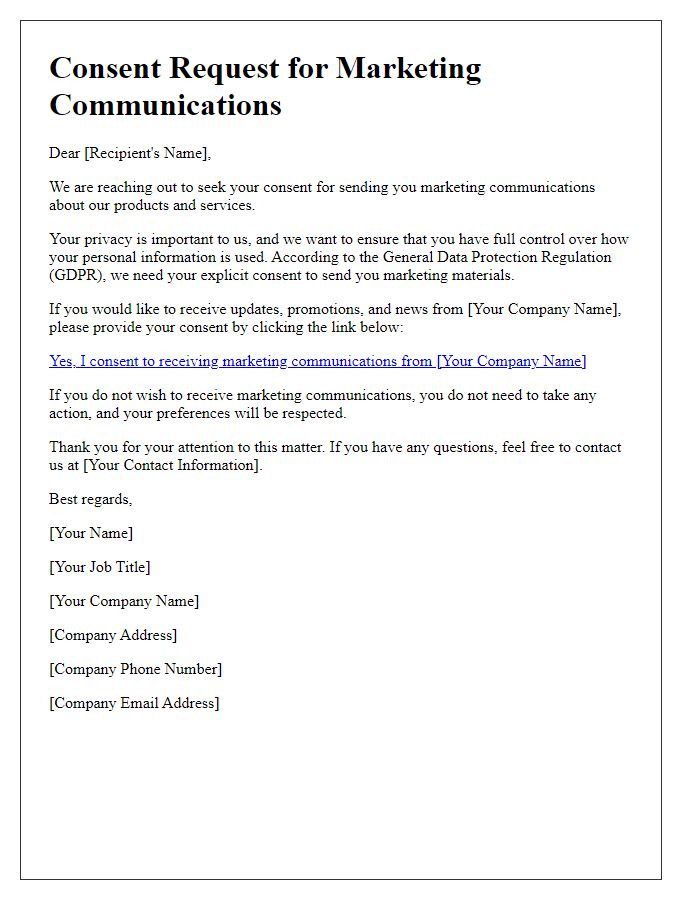
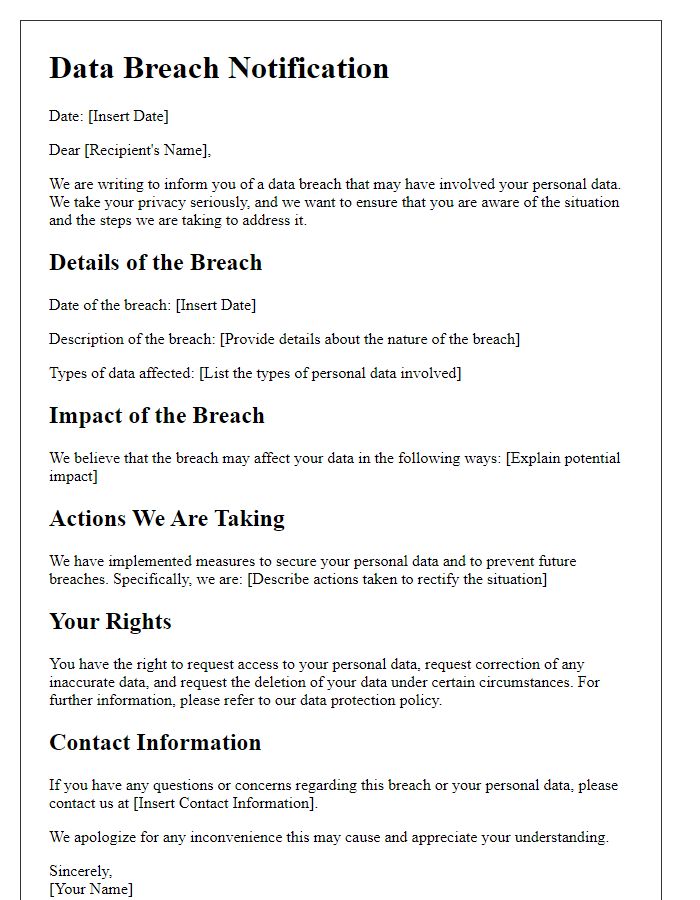
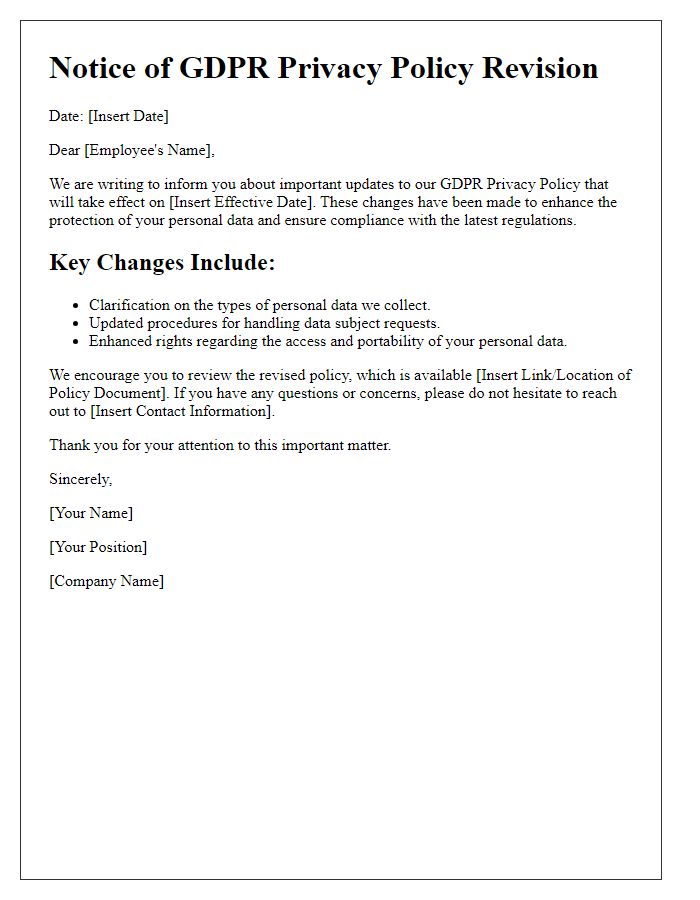
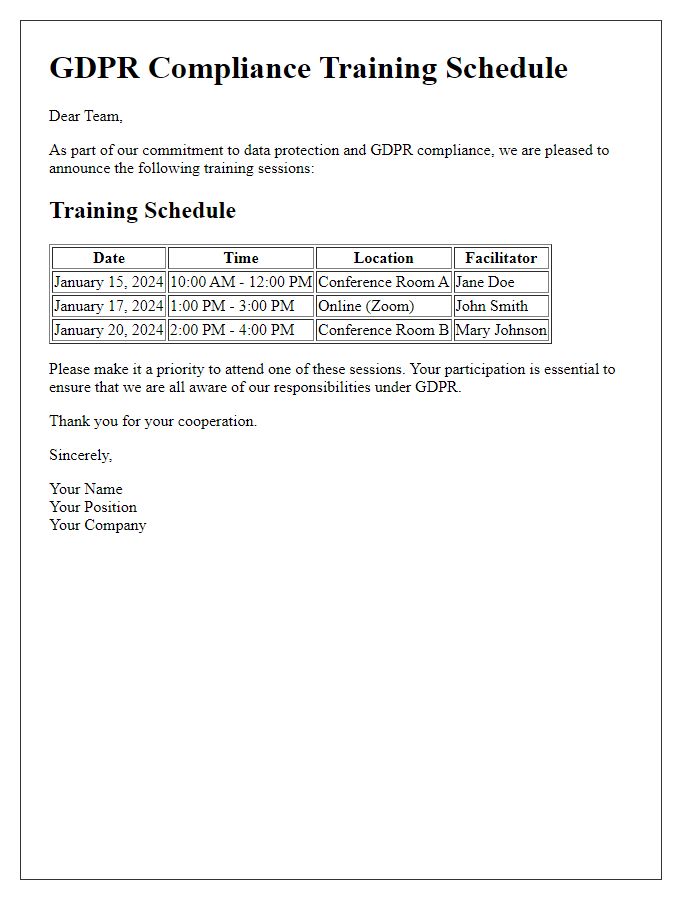
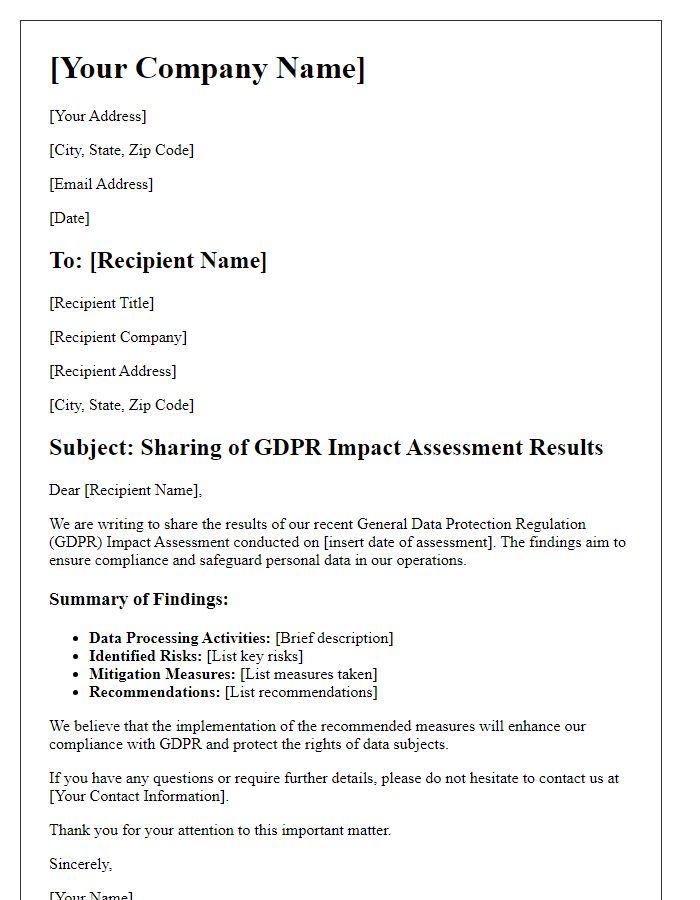

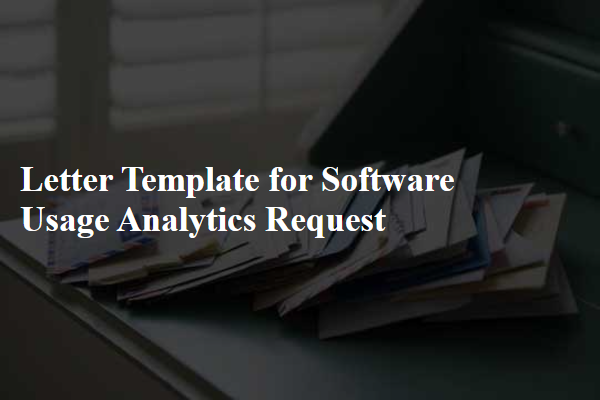
Comments